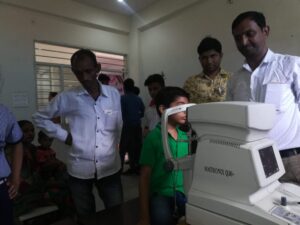Trying to Connect Poor and Orphan Children With Education
Title: “Empowering Futures: Connecting Poor and Orphan Children with Education through NGOs”
Introduction:
In a world where education is often seen as a privilege, rather than a right, millions of poor and orphaned children are left behind, unable to access the transformative power of learning. However, through the tireless efforts of non-governmental organizations (NGOs), hope is being ignited and pathways to education are being paved for these vulnerable children. This essay delves into the vital role NGOs play in connecting poor and orphan children with education, and the profound impact this has on their lives and communities.
Identifying Barriers to Education:
Before addressing how NGOs connect poor and orphan children with education, it is essential to understand the barriers these children face. Economic hardship, lack of access to schools, inadequate infrastructure, social stigma, and the absence of familial support are just a few of the challenges that hinder their educational journey. For orphaned children, the loss of parental guidance and financial support further compounds these obstacles, making access to education seem like an unattainable dream.
NGO Interventions:
NGOs specializing in education and child welfare are at the forefront of efforts to break down barriers and connect poor and orphan children with education. These organizations employ a multifaceted approach that encompasses various interventions:
1. Scholarship Programs: NGOs offer scholarships to cover school fees, uniforms, textbooks, and other educational expenses, ensuring that financial constraints do not deprive children of their right to education.
2. Infrastructure Development: NGOs build and renovate schools, classrooms, and educational facilities in underserved communities, creating safe and conducive learning environments for children.
3. Teacher Training and Capacity Building: NGOs provide training and professional development opportunities for teachers, equipping them with the skills and knowledge to deliver quality education and support the diverse needs of poor and orphaned children.
4. Community Engagement: NGOs engage with communities to raise awareness about the importance of education, address cultural barriers, and mobilize local resources and support for educational initiatives.
5. Psychosocial Support: Recognizing the emotional and psychological challenges faced by orphaned children, NGOs offer counseling, mentorship, and peer support programs to help them cope with trauma and thrive in school.
6. Life Skills Training: NGOs equip children with essential life skills such as critical thinking, problem-solving, and communication, empowering them to navigate challenges and seize opportunities beyond the classroom.
Impact on Children and Communities:
The impact of NGO interventions in connecting poor and orphan children with education is profound and far-reaching. Beyond academic achievement, education empowers children to break the cycle of poverty, pursue their aspirations, and become agents of change in their communities. Educated children are more likely to lead healthier lives, contribute to economic development, and advocate for social justice and equality. By investing in education, NGOs not only transform individual lives but also uplift entire communities, paving the way for a brighter and more equitable future.
Conclusion:
In conclusion, NGOs play a pivotal role in connecting poor and orphan children with education, turning dreams into reality and futures into possibilities. Through their unwavering commitment, innovative approaches, and tireless advocacy, NGOs are breaking down barriers, fostering inclusion, and unlocking the potential of every child, regardless of their circumstances. As we look to the future, let us continue to support and amplify the efforts of these organizations, ensuring that every child has the opportunity to learn, grow, and thrive.





